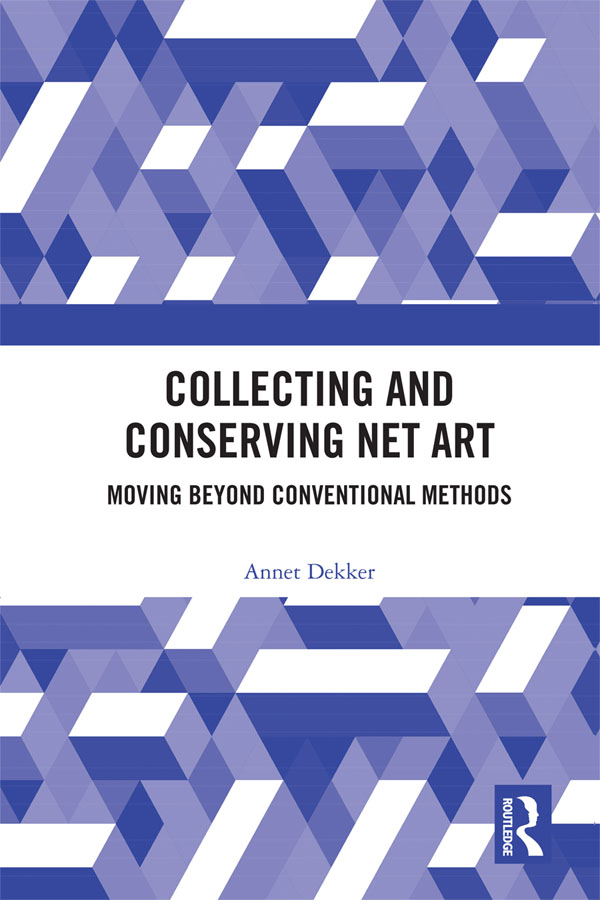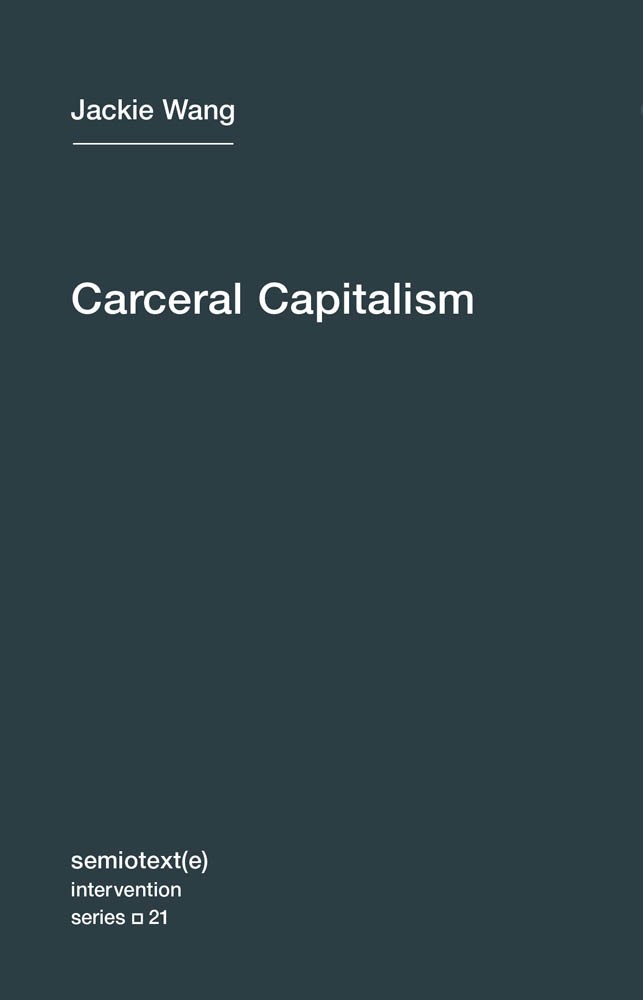Annet Dekker: Collecting and Conserving Net Art: Moving beyond Conventional Methods (2018)
Filed under book | Tags: · archive, archiving, art documentation, conservation, document, internet art, net art, networks, preservation, software, software art, web

“Collecting and Conserving Net Art explores the qualities and characteristics of net art and its influence on conservation practices. By addressing and answering some of the challenges facing net art and providing an exploration of its intersection with conservation, the book casts a new light on net art, conservation, curating and museum studies.
Viewing net art as a process rather than as a fixed object, the book considers how this is influenced by and executed through other systems and users. Arguing that these processes and networks are imbued with ambiguity, the book suggests that this is strategically used to create suspense, obfuscate existing systems and disrupt power structures. The rapid obsolescence of hardware and software, the existence of many net artworks within restricted platforms and the fact that artworks often act as assemblages that change or mutate, make net art a challenging case for conservation. Taking the performative and interpretive roles conservators play into account, the book demonstrates how practitioners can make more informed decisions when responding to, critically analyzing or working with net art, particularly software-based processes.
Collecting and Conserving Net Art is intended for researchers, academics and postgraduate students, especially those engaged in the study of museum studies, conservation and heritage studies, curatorial studies, digital art and art history. The book should also be interesting to professionals who are involved in the conservation and curation of digital arts, performance, media and software.”
Publisher Routledge, 2018
ISBN 9780815382416, 0815382413
x+192 pages
Jackie Wang: Carceral Capitalism (2018)
Filed under book | Tags: · algorithm, biopolitics, capitalism, governance, incarceration, race

“In this collection of essays, Jackie Wang examines the contemporary incarceration techniques that have emerged since the 1990s. The essays illustrate various aspects of the carceral continuum, including the biopolitics of juvenile delinquency, predatory policing, the political economy of fees and fines, cybernetic governance, and algorithmic policing. Included in this volume is Wang’s influential critique of liberal anti-racist politics, ‘Against Innocence,’ as well as essays on RoboCop, techno-policing, and the aesthetic problem of making invisible forms of power legible.
Wang shows that the new racial capitalism begins with parasitic governance and predatory lending that extends credit only to dispossess later. Predatory lending has a decidedly spatial character and exists in many forms, including subprime mortgage loans, student loans for sham for-profit colleges, car loans, rent-to-own scams, payday loans, and bail bond loans. Parasitic governance, Wang argues, operates through five primary techniques: financial states of exception, automation, extraction and looting, confinement, and gratuitous violence. While these techniques of governance often involve physical confinement and the state-sanctioned execution of black Americans, new carceral modes have blurred the distinction between the inside and outside of prison. As technologies of control are perfected, carcerality tends to bleed into society.”
Publisher Semiotext(e), South Pasadena, CA, 2018
Intervention series, 21
ISBN 9781635900026, 1635900026
359 pages
Interview with author (M. Buna, LA Review of Books, 2018)
Review: Steven Zultanski (Frieze, 2018).
Energy Babble (2018)
Filed under book | Tags: · design, energy, sustainability, technology

“This is the story of a set of computational devices called Energy Babbles. The product of a collaboration between designers and STS researchers, Energy Babbles are like automated talk radios obsessed with energy. Synthesised voices, punctuated by occasional jingles, recount energy policy announcements, remarks about energy conservation made on social media, information about current energy demand and production, and comments entered by other Babble users.
Developed for members of UK community groups working to promote sustainable energy practices, the Energy Babbles were designed to reflect the complex situations they navigate, to provide information and encourage communication, and to help shed light on their engagements with energy policy and practice. This book tells the story of the Babbles from a mix of design and STS perspectives, suggesting how design may benefit from the perspectives of STS, and how STS may take an interventionist, design-led approach to the study of emerging technological issues.”
By Andy Boucher, Bill Gaver, Tobie Kerridge, Mike Michael, Liliana Ovalle, Matthew Plummer-Fernandez, and Alex Wilkie
Publisher Mattering Press, 2018
Creative Commons BY-NC-SA 4.0 License
ISBN 0995527725, 9780995527720
148 pages
PDF (16 MB)
Comment (0)
